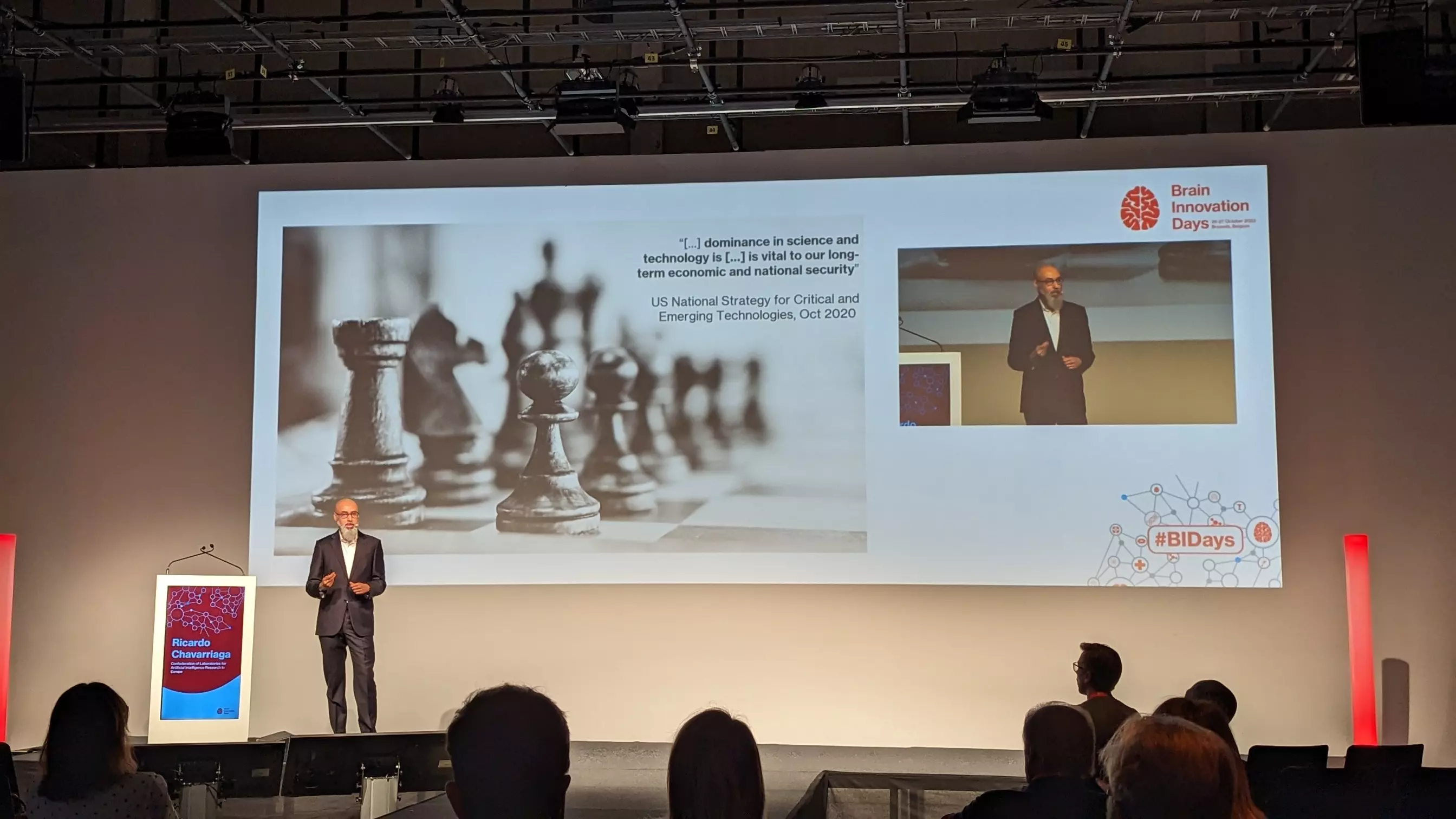ZHAW CAI expert on Responsible AI Innovation gives keynote on geopolitics of neurotechnology innovation
Ricardo Chavarriaga, group leader on Responsible AI Innovation of the ZHAW Center for Artificial Intelligence (CAI), gave a keynote on the topic of "Geopolitics of Neurotechnologies" at the Brain Innovation days in Brussels.

Innovation in AI and neurotechnologies don't happen in a vacuum. They are shaped by the social ans political forces in action at the time of their development. Ricardo Chavarriaga, group leader on Responsible AI Innovation of the ZHAW Center for Artificial Intelligence (CAI), gave a keynote on the topic of "Geopolitics of Neurotechnologies" at the Brain Innovation days. This event, held in Brussels on 26th and 27th of November, gathered researchers, entrepreneurs, investors and policy makers to foster dialogue, exchange knowledge, accelerate investment in research & innovation and facilitate business development.
In his talk, Dr Chavarriaga discussed how emerging technologies play a key role in the economic development and national security of nations. As a result, governments are interested in promoting innovation that addresses global challenges while considering policies intended to protect their population, including domain-specific regulation, exports control or even banning certain uses of technology.
Neurotechnologies are poised to play a key role in improving how do we diagnose, treat and cure mental diseases. Increasing reliance on data-driven and artificial intelligences makes it subsidiary to the hopes and concerns of these technologies. Hence, discussion on data privacy, fairness and robustness are equally applicable to the development of neurotechnologies. Furthermore, new concerns on the impact of these technologies on mental privacy, human agency, self-identity are also applicable.
The ZHAW CAI --in collaboration with partners such as IEEE Standards Association, The Geneva Center for Security Policy (GCSP) and the Geneva Science and Diplomacy Anticipator (GESDA)-- has been developing tools and recommendations for governance frameworks for neurotechnologies. These prone for an international governance approach that tightly integrates soft and hard law, with technical standards and good practices. This approach provide researchers, innovators, policymakers and society at large actionable guidance for ensuring that neurotechnologies are steered towards flourishing of society.
More information:
Chavarriaga, Ricardo; Rickli, Jean-Marc; Mantellassi, Federico,
2023.Neurotechnologies : the new frontier for international governance.
Strategic Security Analyses; 29. Geneva Centre for Security Policy.
Eke et al. 2021. International data governance for neuroscience. Neuron. 110(4), pp. 600-612.